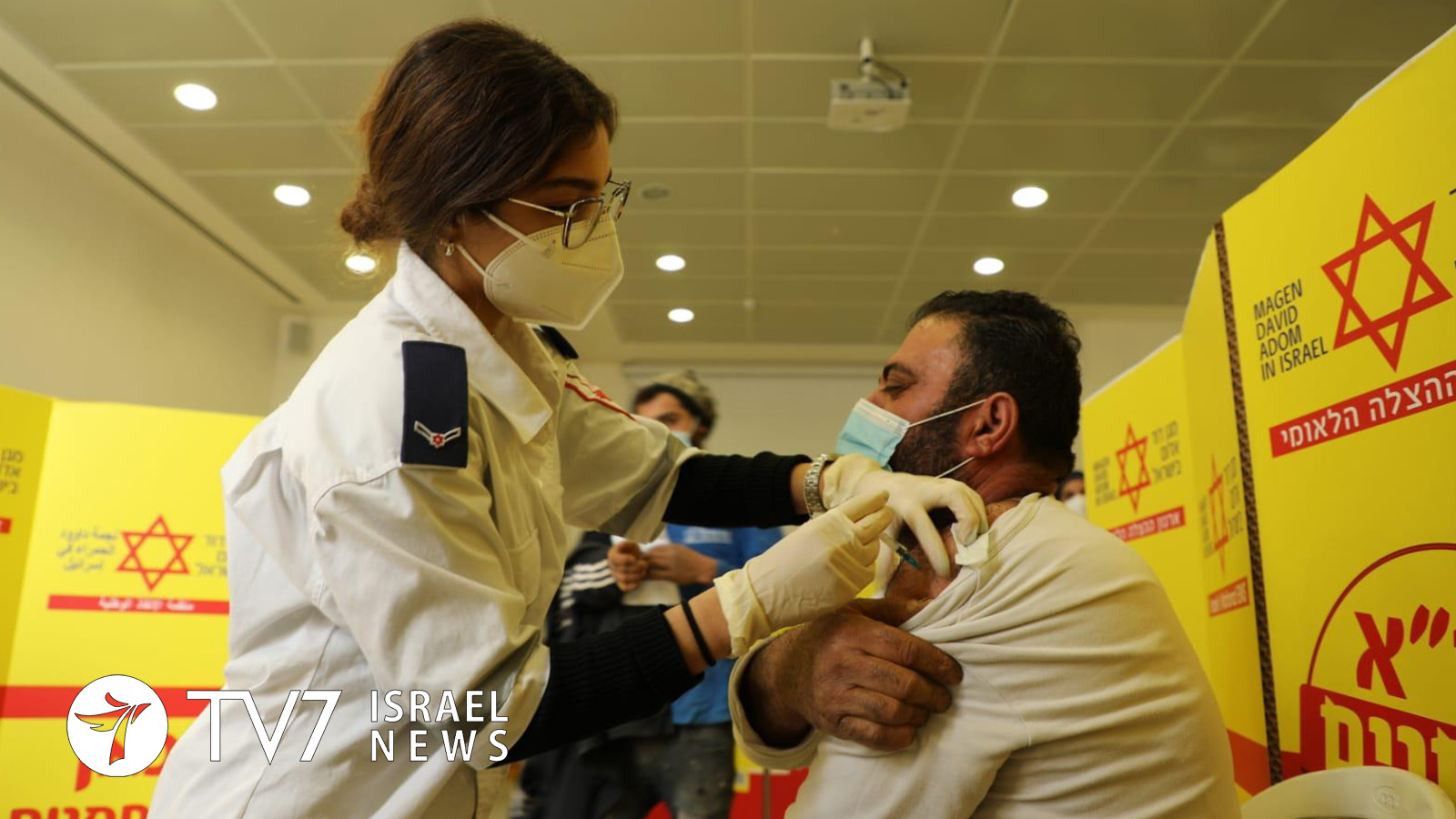Israel’s coronavirus vaccination drive for Palestinians who enter the country for work has successfully been launched.
About 130,000 Palestinians are estimated to have been authorized to work in the Jewish State.
700 Palestinian workers who hold permits for employment in Israel were inoculated yesterday as part of a pilot program, that was carried out at the Ephraim Gate Crossing into the West Bank.
Speaking to reporters ahead of the plan’s implementation, Israeli Coronavirus Czar Nachman Ash said that “from a medical perspective, we think vaccinating the Palestinian workers is very much the correct thing to do.”
7 additional vaccination centers will be opened this coming Sunday at the Gilboa, Rahel, Meitar, LH, Eyal, Hashmonaim and Tarqumiyah checkpoints. 4 others will also be established on 7 March for laborers employed in the at industrial zones of the Jewish communities of Ariel, Barkan, Ma’ale Adumim and Efrat across Judea and Samaria, with more slated for opening in the near future.
The campaign has been implemented after being approved by the Israeli government in order to maintain public health and the functioning of the economy; led by Israel’s Ministry of Health and the Unit for Coordination of Government Activities in the Territories and the Civil Administration (COGAT), in cooperation with the Central Command and the Land Crossings Authority in the Ministry of Defense.
According to a statement TV7 received from the COGAT Spokesperson’s Office, the complexes will be operated by Israeli medical teams together with representatives of the Civil Administration and the Land Crossings Authority.
All of the stations will operate during daylight hours over the next two weeks, with the first vaccination dose given to workers subject to prior appointment and presentation of a valid employment license. Registration for the shots will be made through the employers in Israel and in the communities, which will coordinate with the relevant government ministries in Israel according to the sector, or with the local councils.
Two weeks after the Palestinians have been administered their first doses, they will be notified of when to return to the Israeli complexes to receive the second shot.
Israel has managed one of the world’s fastest vaccination roll-outs, while the Palestinian Authority (PA) has lagged far behind.
Israel has already donated 2,000 Moderna Inc. doses to the PA, and the Secretary-General of the Palestinian Workers Union Shaher Saad told Reuters that thousands of Palestinians who work in the Israeli service and industrial sectors had already been vaccinated privately by their employers inside Israel.
Israeli-Arab citizens are eligible for free shots along with the rest of the Israeli population, including those residing in East Jerusalem who refer to themselves as “Palestinians.”
Even though terms of the Oslo peace Accords state that the PA is responsible for all vaccinations in Gaza and parts of the West Bank where it has limited self-rule, Israel has faced steep criticism for not having done more.
The West Bank and Gaza, home to a combined 5.2 million Palestinians, are believed to have received around 32,000 vaccines doses so far, consisting of donations from Israel, Russia and the United Arab Emirates. More doses from Moscow and drugmaker AstraZeneca are expected within weeks.
Meanwhile the Palestinian COVID-19 vaccine rollout has been under fire for having prioritized the administration of doses meant for medical workers to VIPs.
The PA actually confirmed earlier this week that it had in fact diverted some COVID-19 vaccination doses as critics charged, but claimed the special dispensation only pertained to about 10% of the overall supply.
According to the Palestinian Health Ministry, priority was given to the Palestinian national football team, government ministers, presidential guards and members of the Palestine Liberation Organization’s topmost Executive Committee. Another 200 doses went to the Jordanian royal court, after a request from Amman.
The ministry statement was issued in response to criticism from several Palestinian human rights and civil society groups, who urged an investigation into the vaccination program on charges that it lacks transparency.
“The incoming information and testimonies point to ongoing cases where vaccines are obtained by several parties, in disregard of the principle of priority in distribution,” the groups said in a joint statement on Monday.
Palestinian President Mahmoud Abbas – who last month announced the first elections in 15 years – has long faced accusations of nepotism and cronyism. 86% of Palestinians questioned in a December 2020 poll said they viewed PA institutions as corrupt.
